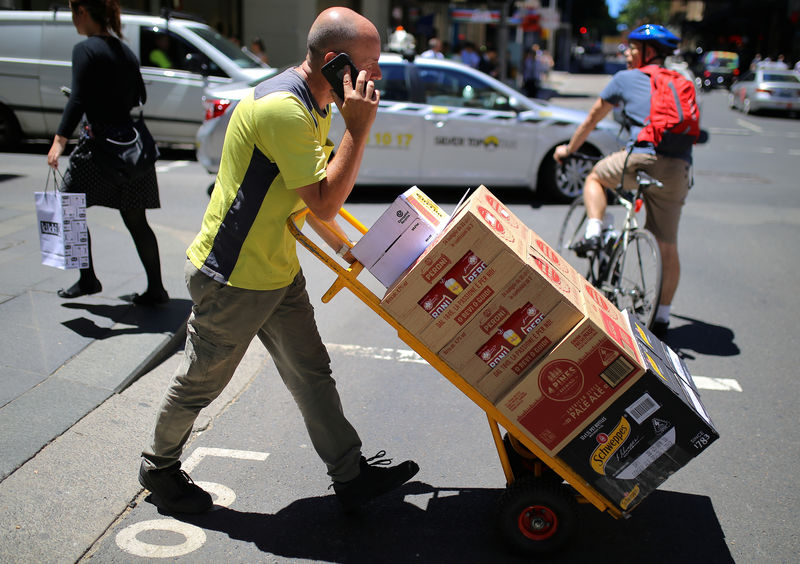SYDNEY, March 13 (Reuters) - An index of Australian business conditions climbed to record highs in February as sales and profits increased sharply, leading to a marked improvement in already healthy employment conditions.
Tuesday's survey from National Australia Bank NAB.AX showed its index of business conditions climbed 3 points to +21 in February, far above the long-run average of +5 and the highest reading since the survey began in 1997.
The survey's measure of profitability rose another 2 points to +21 in February, while its sales index climbed 3 points to +27.
Its often volatile measure of business confidence dipped 2 points to +9, a possible reflection of the turbulence in international financial markets seen in early February.
Firms' demand for labour leapt in February with the employment index jumping 10 points to +16, another all-time high.
"If the recent surge is sustained, the employment index points to a robust level of jobs growth of approximately 27,000 per month," said NAB group chief economist Alan Oster.
"Historically, NAB Business Survey employment has tended to lead the official data by six months," Oster added. "This suggests that the strength in employment growth will not be ending any time soon."
Jobs growth has been the star of the economy in the past year or so, boasting the longest run of gains on record.
The strength in activity was broad-based with all major industry groups reporting above-average conditions, Oster said.
Conditions were strongest in construction, mining, finance, and property & business services. Even the long-struggling retail sector recorded its highest reading in eight months.
In a promising sign for future activity there was also a solid 3 point increase in the index of forward orders, taking it to +11.
There were particularly large increases in orders for wholesale, mining, manufacturing and, to a lesser extent, in retail and finance, property & business.
"Taken literally, new orders at this level is consistent with non-mining domestic demand growth approaching 6 percent," said Oster.
That was welcome news after official figures out last week showed a disappointing ending to last year, with the economy expanding by just 0.4 percent in the December quarter and 2.4 percent for the year.
The outcome put a question mark over the Reserve Bank of Australia's (RBA) forecast that growth will pick up to more than 3 percent this year and next.
"The strength in business conditions and leading indicators makes us more confident that Australia will see stronger economic growth in coming quarters," said Oster.
"We expect by late 2018 the RBA will feel relaxed enough about the domestic fundamentals to cautiously start withdrawing the stimulatory policy stance it is currently running."
The central bank has kept rates at an historic low of 1.5 percent for more than a year and shown little inclination to hike, given slow wages growth and low inflation.
Tuesday's survey showed few price pressures at the consumer level with retail prices up only marginally in February. Labour costs did rise but more because of the jump in employment rather than rising wages.
